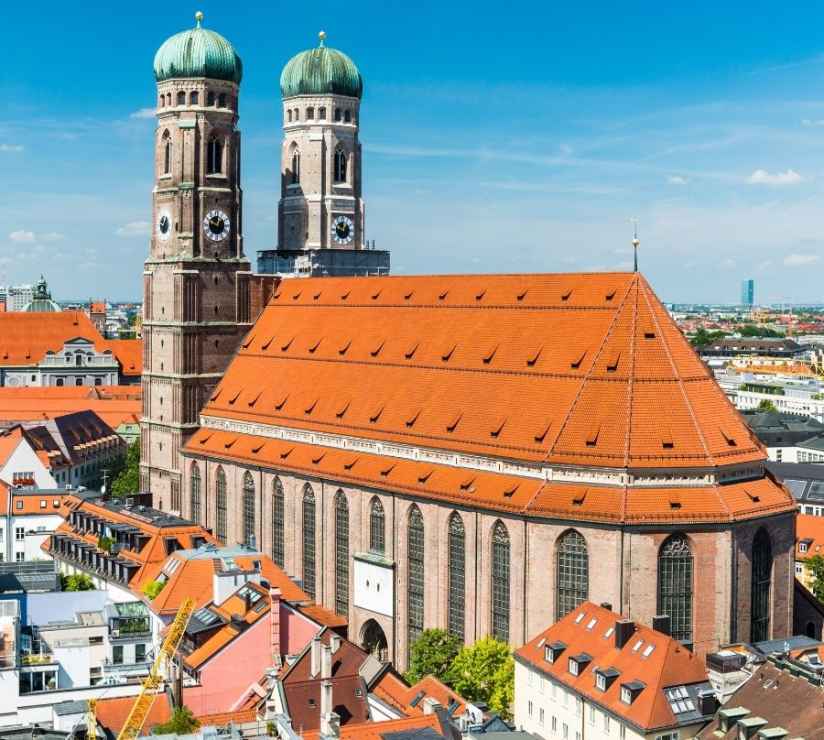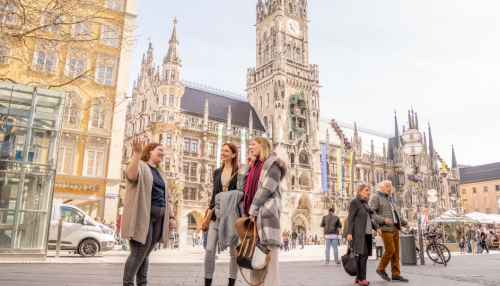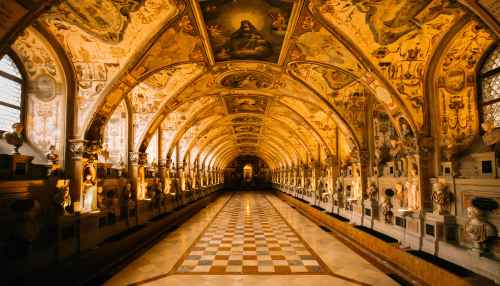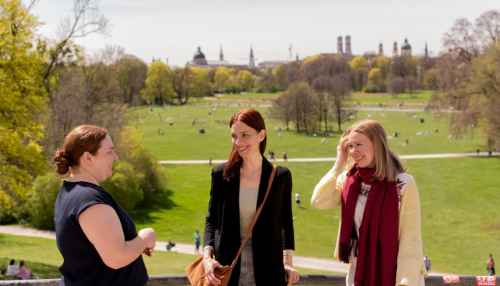Table Of Contents
- Introduction: My Honest Answer
- How to Get Here Without the Hassle
- First Impressions: What You'll Actually See
- Getting Around: Walk, Bike, or Ride?
- Beer Gardens: More Than Tourist Attractions
- Cultural Offerings Beyond the Obvious
- Hidden Gems and Real Local Life
- Munich vs Berlin: An Honest Comparison
- Seasonal Considerations: When to Visit Munich
- Day Trips Worth Your Time
- Practical Tips: What You Actually Need to Know
- Getting the Most from Your Trip
- My Final Verdict
Introduction: My Honest Answer
After four decades of calling Munich home, I get asked this question more than any other: is Munich worth visiting? The short answer is yes, but with important caveats that most travel guides won't tell you.
Munich isn't the flashiest city in Europe, nor the most cutting-edge. It's not trying to be. What it offers is something increasingly rare: authenticity wrapped in Bavarian tradition, where locals still gather in centuries-old beer gardens and public transport actually works. But it's also expensive, can feel conservative, and the weather is unpredictable.
I've watched this city evolve from a sleepy Bavarian town to a major European destination. The changes haven't all been positive, but the core of what makes Munich special remains intact. Whether it's worth your time and money depends on what you're seeking.
How to Get Here Without the Hassle
Munich Airport sits about 40 kilometers northeast of the city center, and honestly, it's one of Germany's better airports. The S-Bahn connection (S1 and S8 lines) runs every 10 minutes during peak hours, taking 40 minutes to reach the city center. Don't bother with taxis unless you're carrying excessive luggage – they'll cost you €60-80.
The Munich transport company (MVG) runs an integrated system that actually makes sense. A single ticket covers buses, trams, U-Bahn, and S-Bahn within the city zones. Buy a day ticket if you're planning multiple trips; individual tickets add up quickly.
From other German cities, the train connections are excellent. I've taken the high-speed train from Berlin (4 hours), Hamburg (6 hours), and Frankfurt (3.5 hours). The main station (Hauptbahnhof) drops you right in the city center, making hotel access straightforward.
Key insight: Public transport here runs like clockwork, but it's not cheap. Factor transport costs into your budget from day one.
First Impressions: What You'll Actually See
Munich's city center won't overwhelm you like Paris or Rome might. The scale is human-sized, which I appreciate after traveling to megacities that exhaust you before lunch. Marienplatz, dominated by the New Town Hall with its famous Glockenspiel, serves as the natural starting point for most visitors.
The Town Hall area can get crowded, especially when the Glockenspiel chimes at 11 AM and noon. I usually steer visitors toward the less obvious corners of the old town, where you'll find locals going about their business rather than tourist crowds.
Unlike most German cities, Munich retained much of its historical character despite war damage. The reconstruction followed original plans rather than modernist experiments, which gives the city center a coherence that feels genuine rather than fabricated.
Walking from Marienplatz to the English Garden takes about 15 minutes, passing through neighborhoods that shift from tourist-focused to genuinely local. This transition happens faster here than in comparable German cities, which I consider one of Munich's strengths.
Looking for a private city experience in Munich?
Explore the city with a local who plans a private day just for you; no groups, no scripts.
Getting Around: Walk, Bike, or Ride?
Munich is surprisingly walkable for a city of 1.5 million. The city center to English Garden distance is manageable on foot, and most major attractions cluster within a 3-kilometer radius of Marienplatz. I walk to work daily and rarely feel like I'm missing out on efficiency.
Public transportation covers everything walking doesn't. The U-Bahn and S-Bahn systems connect every neighborhood worth visiting, and trams fill the gaps beautifully. Unlike many German cities, the system runs frequently enough that you don't need to memorize schedules.
Bike lanes crisscross the city, though the infrastructure varies wildly by neighborhood. The path along the Isar River is spectacular for cycling, connecting the city center to suburban areas through green corridors. Many locals use bikes for daily commuting, not just recreation.
Bike tours operate year-round, though I'd recommend them more for the guided commentary than transportation efficiency. The organized tours hit standard tourist stops but miss the neighborhoods where actual Munich life happens.
Practical tip: Public transport runs until around 1 AM on weekdays, 2 AM on weekends, with night buses filling the gap. Don't get stranded.
Beer Gardens: More Than Tourist Attractions
Beer gardens define Munich's social life in ways that outsiders often misunderstand. These aren't just places to drink beer; they're community centers where families gather, business meetings happen, and strangers share tables without awkwardness.
The Augustiner-Bräu beer garden near the city center serves exceptional Bavarian beer in an atmosphere that feels untouched by tourism. Locals outnumber visitors 3-to-1, conversations happen in German, and the food comes from actual kitchens rather than warming stations.
Chinesischer Turm in the English Garden offers a different experience – more international, busier, but still authentic. The beer garden tradition allows you to bring your own food while buying drinks, which keeps costs reasonable and creates a relaxed atmosphere.
Smaller beer gardens throughout the city offer the most genuine experiences. Menterschwaige, near the zoo, attracts families and dog walkers. Hirschgarten claims to be the world's largest beer garden, which feels true when you're searching for a table on summer evenings.
Cultural Offerings Beyond the Obvious
The Deutsches Museum deserves its reputation as one of the world's premier science and technology museums. I've brought visiting friends here dozens of times, and it never feels repetitive. The exhibits on aviation, mining, and telecommunications offer hands-on experiences that engage adults as much as children.
Museums throughout the city cover everything from art to local history. The Fishing Museum might sound niche, but it provides unexpected insights into Bavaria's relationship with its rivers and lakes. These smaller institutions often provide more personal experiences than the major attractions.
Munich's music scene extends far beyond Oktoberfest folk performances. The Bavarian State Opera maintains world-class standards, while smaller venues throughout the city host everything from jazz to electronic music. Events happen year-round, not just during tourist season.
The contemporary art scene concentrates in neighborhoods like Glockenbachviertel and Schwabing, where galleries and studios occupy former industrial spaces. These areas offer glimpses of Munich's creative community that tourist guides rarely mention.
Cultural tip: Many museums offer reduced admission on Sundays or specific weekday evenings. The city's cultural institutions take their educational mission seriously.
What if your day in Munich was planned by someone who knows it — and you?
City Unscripted matches you with a local host who creates a private experience based on your interests, not a set route.
Hidden Gems and Real Local Life
The Viktualienmarkt food market operates daily except Sundays, selling everything from Bavarian specialties to international ingredients. Locals shop here for quality rather than convenience, creating an atmosphere that feels genuinely functional rather than performative.
Shops in the Glockenbachviertel and Schwabing neighborhoods offer alternatives to the chain stores dominating the city center. Independent bookstores, vintage clothing shops, and specialty food stores create street-level character that the tourist zones lack.
Most stores close on Sundays and public holidays, which can surprise visitors from countries with different retail traditions. Plan accordingly, especially if you need specific items or services.
The weekly markets in neighborhood squares (Elisenhof, Wiener Platz) provide insights into daily Munich life. These markets serve residents rather than tourists, with vendors who've worked the same spots for decades and customers who shop by season rather than impulse.
Small restaurants in residential neighborhoods often provide better food and atmosphere than the tourist-focused establishments near major attractions. The Turkish, Italian, and Greek communities have established excellent restaurants that locals frequent regularly.
Insider knowledge: Most stores remain closed on Sundays, but train stations and airports maintain limited retail hours. Stock up on essentials during regular business hours.
Munich vs Berlin: An Honest Comparison
The Munich-Berlin comparison comes up constantly in conversations with visitors, and both cities have devoted advocates who defend their choice with near-religious intensity. The rivalry reflects genuine philosophical differences about what German urban life should prioritize and how cities should balance tradition with innovation.
Berlin offers more obvious excitement – better nightlife that extends well past 2 AM, more visible creativity in street art and alternative culture, significantly cheaper costs for food, accommodation, and entertainment. The energy feels more international and politically engaged, with neighborhoods that maintain distinct identities and subcultures that flourish independently of mainstream German culture.
Munich provides stability, better infrastructure that actually functions as designed, and cleaner streets that don't require constant vigilance for dog waste or broken glass. The quality of life feels higher in measurable ways – public transport runs on schedule, restaurants maintain consistent quality, and urban planning creates functional rather than chaotic city spaces.
Berlin feels more international and politically engaged, with conversations that address contemporary European issues and global cultural movements. Munich feels more traditionally German in ways that appeal to some visitors and frustrate others who expect cities to embrace constant change and innovation as positive values.
Most German cities fall somewhere between these two extremes, but Munich and Berlin represent genuinely different approaches to urban development and cultural priorities. Munich chooses quality of life over edginess, tradition over innovation, stability over excitement. Neither approach is inherently superior, but they attract different types of residents and visitors.
Munich offers better access to Alpine regions for hiking, skiing, and mountain scenery, while Berlin provides superior connections to Eastern Europe and Scandinavian countries. Both cities serve as effective bases for exploring Germany, but in different directions and with different cultural emphases that shape the travel experiences they facilitate.
Choose Munich for traditional German experiences, outdoor access, and higher service standards. Choose Berlin for contemporary culture, lower costs, and international urban energy. Both cities offer authentic German experiences, but they represent different aspects of contemporary German culture and values.
Tip
We match you with the right host, not just any guide.Want to experience the real Munich with someone who lives there?
A fully private experience, planned and led by a local host who tailors the day to you
Day Trips Worth Your Time
Day trip options from Munich cover everything from Alpine villages to other major German cities, taking advantage of Bavaria's central location and excellent transport connections. The train system makes Salzburg (1.5 hours), Nuremberg (1 hour), and Augsburg (45 minutes) easily accessible without overnight stays or complex logistics.
The Magical Neuschwanstein Castle
Neuschwanstein Castle requires more planning than closer destinations but delivers the fairy-tale German experience that many visitors expect from Bavaria. Tour bus connections run regularly from Munich, though I prefer taking the train to Füssen and connecting via local bus to the castle area. This approach costs less and provides more flexibility than organized tour packages.
The journey to Neuschwanstein offers scenic views of Bavarian countryside and smaller towns that provide context for the region's agricultural and cultural history. The castle itself can be crowded, especially during summer months, but the surrounding area offers hiking trails and traditional restaurants that extend the day trip experience beyond the single attraction.
Adventurous Bavarian Alps
The Bavarian Alps offer hiking, skiing, and mountain scenery within 90 minutes of the city center by train or car. Popular destinations include Garmisch-Partenkirchen for mountain access, Mittenwald for traditional Alpine architecture, and Berchtesgaden for dramatic mountain scenery and historical sites. Car rental provides maximum flexibility for exploring smaller villages and mountain routes, though public transportation reaches most major destinations.
Day trip planning benefits from early starts and advance ticket purchases, especially for popular destinations like Neuschwanstein where tour groups can create substantial crowds. Weekend trips require more advance planning than weekday excursions because local German tourists also favor weekend day trips from Munich to the same destinations.
The Romantic Road driving route passes through medieval towns and countryside that epitomize tourist expectations of rural Germany. Towns like Rothenburg ob der Tauber and Dinkelsbühl offer well-preserved medieval architecture and traditional German small-town atmosphere within 2-3 hours of Munich by car or organized tour.
Practical Tips: What You Actually Need to Know
Speak English expectations vary by situation. Hotel staff, major restaurants, and tourist attractions typically offer English-language service. Neighborhood shops, local markets, and public transport staff may not.
Learning basic German phrases improves experiences significantly, especially in situations where English isn't available. "Entschuldigung" (excuse me), "Danke" (thank you), and "Sprechen Sie Englisch?" (Do you speak English?) solve most communication problems.
Money matters: Munich ranks among expensive cities in Germany. Budget €100-150 per day for meals, transport, and attractions. Hotel costs vary dramatically by location and season, with city center properties commanding premium rates.
Emergency services (police: 110, fire/medical: 112) operate in English when necessary. Medical care maintains high standards, though travel insurance remains advisable for non-EU visitors.
Safety concerns are minimal compared to many European capitals. Standard urban precautions (watch belongings, avoid excessive alcohol, stay aware of surroundings) provide adequate protection.
Cost-saving tip: Many museums offer combination tickets or weekly passes. Public transport day passes save money for visitors making multiple trips.
Getting the Most from Your Trip
How many days should you stay? Three days covers major attractions without rushing. Five days allows for day trip exploration and neighborhood discovery. A full week provides time for seasonal events and deeper local experiences.
Trip timing affects more than just weather. Oktoberfest (late September/early October) transforms the city but also increases costs and crowds dramatically. Christmas markets create special atmosphere but require advance planning.
Hotel location matters more than star ratings. Properties near public transport stations provide better access than luxury hotels in remote areas. The city center offers convenience but limited authentic local experience.
Restaurants frequented by locals typically provide better value and atmosphere than tourist-focused establishments. Look for places where conversations happen in German and menus aren't translated into six languages.
Tour experiences vary widely in quality and focus. Self-guided exploration often provides more flexibility than organized tour schedules, especially for visitors with specific interests.
Maximize your experience: Balance major attractions with neighborhood exploration. Munich rewards visitors who venture beyond the obvious tourist zones.
Ready to plan your perfect day in Munich?
Start your experienceMy Final Verdict
So, is Munich worth a visit? After four decades here, I believe it is – but not for everyone, and not for the reasons most guidebooks suggest.
Munich offers something increasingly rare in Europe: authenticity that doesn't feel manufactured for tourists. The beer gardens serve actual communities, not just visitors. The museums educate rather than simply entertain. The public transport works because locals depend on it daily.
But this city demands realistic expectations. It's expensive, sometimes feels insular, and the weather can disappoint. If you're seeking non-stop excitement or cutting-edge culture, other German cities serve those needs better.
What Munich provides is quality over quantity: fewer attractions, but better executed. Deeper cultural experiences rather than superficial variety. A chance to see how traditional German urban life actually functions, not how tourist boards present it.
Visit Munich if you appreciate craftsmanship, traditional culture, and outdoor access. Skip it if you prioritize nightlife, avant-garde art, or budget travel. The city rewards visitors who align with its values and frustrates those who don't.
Johannes Becker has lived in Munich for over 40 years, working as a travel writer and local cultural guide. His insights come from daily life in Bavaria's capital, not tourist research. For more authentic Munich experiences and detailed Munich activities, explore his other local guides.
What if your day in Munich was planned by someone who knows it — and you?
City Unscripted matches you with a local host who creates a private experience based on your interests, not a set route.
Want to experience the real Munich with someone who lives there?
A fully private experience, planned and led by a local host who tailors the day to you
Meet Your Munich Hosts
A personalized way to explore Munich’s must-see landmarks beyond the tourist crowds.











